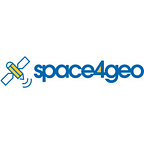Interview with a new Associated Partner: GEODETIC INSTITUTE OF SLOVENIA
Geodetic Institute of Slovenia (GI) is a leading Slovenian public institution for geodetic, geoinformatic, photogrammetric, cartographic and hydrographic research and development, established in 1953. Funded completely project-wise, GI plays a bridging role between public, private and research sectors. A significant part of the projects is elaborated for the Surveying & Mapping Authority and for practically all national ministries. In cartography and mapping, GI holds four awards for “Excellence in Cartography” by the International Cartographic Association (Ottawa, 1999, Durban, 2003, Paris, 2011, Washington, 2017).
GI is authorized to operate national spatial data infrastructure services such as supervision of data quality in real estate, distribution of precise GPS/GNSS data processed by the national reference stations network, and dissemination of maritime hydrographic data. Maps and spatial data are produced in conformance with INSPIRE directive, International Hydrographic Organization (IHO) and International Civil Aviation Organization (ICAO) standards. GI coordinated the transition of the whole country to a new European coordinate system.
The institute took part in the establishment of a new real estate register and a system of real estate assessment. Currently, GI is involved in the national project eSpace, where formal procedures of e-spatial planning and e-building are being integrated into e-government sectors. It also operated own Training Centre for Geomatics for more than a decade.
How does your organisation currently support the development of GI and EO skills?
The institute has several projects using machine and deep learning for the nation-wide detection of illegal and uncompliant buildings. Synthetic digital orthophoto is produced for this purpose. Similar techniques are applied for automatic detection of topographic objects, wind turbines and LU/LC changes. GI is a national contact point for land cover mapping and a supervisor of agricultural subventions to farmers by land use monitoring. For all such works GI employs geodesists, geographers, landscape planners and agricultural engineers. Geoinformation is used in all projects for practically all ministries and national agencies. To maintain our good shape, we send employees to various workshops and courses.
What do you think we need in order to improve GI and EO skills in Europe?
First of all we need to promote STEM professions and education more efficiently, not only on the EU level, but more on the national one. GI and EO skills are competitive parts of STEM field. The Body of Knowledge in GI/EO is big, there are many types of relevant curricula at different faculties. However, Faculties do not teach only GI & EO, their lectures have to include also other topics and the Universities are quite rigid institutions where fast adaptations of curricula to the needs of private and public sector is not efficient. To solve the GI & EO skills problem we have to make the higher education system more flexible. We do have established studies of geography, geodesy, urban and landscape planning. Do we have and faculty in EU which is specialized completely for EO skills? Will such a study attract enough students? We have to begin in primary school already.
Another problem are the national bodies responsible for education (usually Ministries or Agencies). Even more rigid and acting as an umbrella above the educational system. The solution is in more efficient procesess of communication between these stakeholders which could lead to more flexible education program. Can we push these processes to the front of our strategic aims? We know that changing curricula in primary, secondary and higher education just because of a single topic like GI & EO is a mission impossible. There is no short-term solution. A systematic EU-wide vocational trainig is maybe a good idea, but we have to attract young practitioners, pay them well and find a critical mass of relevant EO projects to succeed.
Why was it important for you to join EO4GEO?
First of all, the institute needs fresh specialists in GI & EO. Maybe EO4GEO can offer a way to get new employees. Other Slovenian companies are encountering a lack of GI & EO specialists.
Second, the institute is collaborating with the national Ministry of Education. EO4GEO can be a platform to start a new type of cooperation with them in the field of GI & EO skills.
One of the key topics for us is also networking with partners in the consortium to start new project initiatives, probably as a continuation of EO4GEO project. We do work in public domain, but our financing is 100 % from projects, with no regular public cofunding. Since we were operating training centre for geomatics in the near past, we have some experiences in this field. As a public institution we also have to act for a societal benefit.
